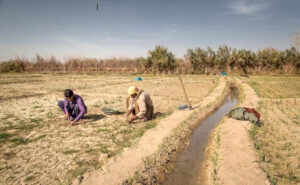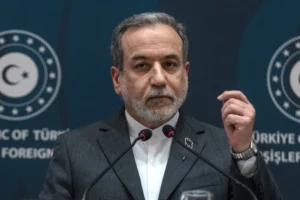KABUL (SW) – Salam Watandar’s findings from interviews with 16 female employees of the National Army in the republic government, who have been dismissed from duty after the establishment of the Islamic Emirate, show they are struggling with dire economic situation.
Of the interviewed women, 14 expressed that they are currently grappling with hunger after losing their jobs, while the remaining two are facing challenging economic circumstances. Five of these women have resorted to demanding occupations such as sewing and begging, while the others remain unemployed. Notably, 12 of these women are the head and sole providers for their families.
On the other hand, the hardships of life have caused 13 of these women to have significant psychological challenges.
Samira, a woman who now seeks assistance from others on the streets of Kabul city, says that she served in various capacities within the National Army for the past five years while pursuing her education up to a master’s degree. However, following the political changes, she has resorted to begging on the streets to sustain her child and prevent him from experiencing hunger.
“From the day I am unemployed, we have no one to afford our needs,” she whined. “Our economic situation is also dire straits. My baby and I, beg every day. I remember the days I were studying. I have got a master’s degree in law and political science, but today I beg.”
Hamida Yousufzai, a resident of Ghazni, who underwent military training in Turkey and served in various capacities within the tribal affairs, martyrs, and disabled sections of the National Army, is currently grappling with unemployment.
Hamida lives in a six-member family, and she is the sole provider of her family. Faced with a challenging economic situation, she resorts to cleaning others’ houses to earn a meager income. However, what Hamida earns through this work is insufficient to meet her family’s needs, leading them to endure many days of hunger.
“It is really difficult for me to express these words. I have lived through days that will never forget. Simultaneously, the absence of a father figure weighed heavily on me. The house is rented, and I bear the responsibility of providing for my family. I wish that all these days were just a dream,” she added.
Hamida and her siblings were mere children when their father passed away. Despite her young age, as the eldest in the family, Hamida managed to secure a job in the national army during the republic’s rule. Her income became a lifeline, providing financial support for her family for a while.
Finding a job and income that can meet the necessities of life and support the family is not only Hamida’s desire but also many of the interviewees in this report share a similar aspiration.
Marwa Moradi, who has worked in the National Army Department of Personnel and Policy Training for three years, says: “I wish life was over and it would not be morning again.” Moradi wished to become a military pilot, but destiny did not unfold in her favor. “When the government fell, we lost our duty. I was the head of the family, and I was very mentally damaged. We had two years of supplementation training, and tried hard to get a degree.”
Marwa adds that by changing the rule, in addition to losing her job and aspirations, her husband has also left her. She says four months after her wedding, her husband left Afghanistan without her knowledge to avoid being investigated by the de-facto government for having a military wife. Marwa says that she was pregnant when her husband left her and now her child is two years old. “At the end of the regime, I got engaged. The Islamic Emirate came and I got married, but after four months, my husband left and went to Iran, and I had to join back to my family,” she said.
Sonia Jalal from Mazar-e-Sharif served three years in the officer division of the National Army during the republic regime and currently faces unemployment. She says that her elderly and visually impaired father, as well as herself is struggling with lung disease. According to her, they have no one else to support her family of nine. Despite Sonia’s efforts to secure a job for herself, she has faced unsuccessful attempts, leading to severe economic challenges and mental health issues.
“I am currently unemployed. Ever since I lost my job, I have had many problems. Due to poverty and helplessness, we cannot treat ourselves and pay the rent of the house,” Sonia said.
Masouda Rasuli, having dedicated four years to the former National Army, now she is responsible for caring for her elderly mother with a heart condition amid unemployment. Despite her endeavors to find new opportunities after losing her job, success has remained elusive for Masouda.
Masouda adds: “My father passed away last year, only my weak mother and I remained. We are also struggling with mental and economic problems. Life is so suffering. There is no way to go to the second countries, nor have the economy ability.”
Among the four women interviewed in the report, all have migrated since the regime change. Three of them have been granted asylum in Iran, while another has sought refuge in Pakistan. They share that they have encountered challenging economic conditions in neighboring countries, compelling them to engage in demanding and labor-intensive work.
Rabez Sadat, a postgraduate of Dari literature, dedicated seven years to working in the research departments of the Ministry of National Defense in the prior regime, serving as a deputy in military policies and personnel training, says that she relocated to Iran after the fall of the republic.
“There is no employment for us in Iran. Whenever we approach a potential opportunity, we are met with the response that we are Afghan nationals, and they do not hire us. Consequently, we find ourselves compelled to undertake strenuous work that we have never engaged in throughout our entire lives.”
However, a number of women’s rights activists urge the de-facto government to create a conducive work environment for both women and men, irrespective of gender. They emphasize that numerous women are the primary sole providers for their households’ needs and should have the opportunity to actively participate in various sectors.
Susan Khaliqyar, a women’s rights activist, emphasizes that governments have the responsibility of upholding the rights of their citizens, ensuring equal access to fundamental rights, such as the right to work, for everyone, irrespective of gender.
Zainab Rezaie, another women’s rights activist, also says: “Several of these women are currently unemployed in Kabul, and their families solely relied on their income. The uncertainty surrounding the government’s secondary notify leaves us questioning when women will be granted the freedom to work once again.”
Despite these challenges, Zabihullah Mujahid, the spokesperson for the Islamic Emirate, tells Salaam Watandar that due to the disbandment of military organizations and the enlistment of new personnel, the salaries of former soldiers are not being disbursed.
He adds: “Everyone who worked in military organizations, those organizations were dissolved and new people have come. Especially the military sector and these sectors, they are no longer considered as employees; If they are women or men, their salaries will not be paid,” added Mujahid.
We attempted to seek the Ministry of Defense’s perspective for inclusion in this report, but our efforts proved unsuccessful.
ENDS






